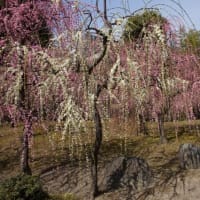The following is from the serial column of Masayuki Takayama, who brings the weekly Shincho released today to a successful conclusion.
This article also proves that he is the one and only journalist in the postwar world.
His ranking is different from the likes of Aoki Osamu and the editorial board of the Asahi Shimbun. He is exceptional.
LGBT Advanced Nation
In Senryū of the Edo period (1603-1868), there is a saying, "Shinran and Kobo allowed the reverse and the front.
Shinran's asceticism was not the only way to practice Buddhism. He taught that we should eat meat and take wives.
He married Keishinni and had six children.
On the other hand, Kobo openly allowed Shudō, or male homosexuality, in his monks' training in the mountains.
In temples where women were forbidden, boys as young as junior high school age would take care of the monk's personal affairs.
They were called "juveniles," and they became the partners of Shudō.
It flourished at temples of the Shingon, Tendai, and Kegon sects.
Sosho, the head of the Todaiji temple simultaneously as Shinran, said, "I've had too many children," and "I don't want to have a hundred. I don't want to have a hundred children, though I have ninety-five now.
Senryu at the beginning means that Shinran allowed the priest to hold his wife in the missionary position, and Kobo allowed him to have the child in the doggy style.
The pleasures of the Buddhist priest have spread to samurai and public society.
It is well known that Ashikaga Yoshimitsu was fond of Zeami.
Ouchi Yoshitaka, a warlord who ruled Yamaguchi and Shimane, also fell in love with the fad.
One day, Xavier, a Jesuit, came to Ouchi and preached, "Sodomy is unacceptable.
Ouchi scolded Xavier for his rudeness, saying, "Don't speak ill of other people's sexual preferences.
Xavier later apologized for his unnecessary concern, and Ouchi forgave him and gave him Daidoji Temple in present-day Yamaguchi City to use as a missionary site.
In the Edo period (1603-1868), all kinds of sexual preferences flourished.
It is said that Izumo no Okuni, who wore a man's costume on a stage in Rokujo, Kyoto, was the first.
The ladies of Shijo followed her example and performed Harimise on the Shijo riverbank.
Harimise is a touting show where a female dancer dances behind a lattice at the beginning of the day.
They took it up a notch and put on more risqué performances, which brought in more customers.
Thus, women's kabuki flourished as a sex industry, but 30 years after Okuni's death, it was banned for disturbing public morals.
If the woman was useless, then young men's kabuki emerged.
The Onnagata, a male actor, dressed as a woman, appeared.
It created an alluring charm and a boom of young boys who the ordinary people enjoyed.
In the United States, transvestite (TV) games began around the time of the Vietnam War.
Nowadays, every street in Manhattan has a thriving TV store.
The Wakashu Kabuki, which was the forerunner of this type of theater, was disrupted by the same disorder as the Women's Kabuki, and the curtain came down after more than 20 years.
However, the shogunate does not work senselessly either.
The Edo government approved Yoshiwara as an official Hanamachi, but it also tacitly approved an unlicensed prostitute place such as Shinbashi and Azabu Juban.
The Yamanote Line connected them all.
The Shudō-specialized Kagema Chaya was also tacitly approved, and Yushima, Shiba Shinmei, and Nihonbashi Yoshicho were crowded.
In those days, homosexuality was a capital offense in the Christian and Muslim worlds, so the generosity of Japan must have seemed bizarre beyond tolerance.
This tolerance continues to this day, with gay men becoming TV personalities because they are gay.
Because of this tolerance, gay people sometimes say they want to get married like other people.
The other day, three gay couples appealed to the Sapporo District Court to marry. The female judge ruled that it was unconstitutional not to give legal protection to same-sex marriages.
Gay couples can't use their spouse's health insurance, can't be beneficiaries of life insurance, and can't share in the inheritance. That's discrimination, they say.
The idiot Asahi Shimbun says that Japan is the only major country that does not allow same-sex marriage and that Japan is behind the curve.
The Asahi and gay couples should learn a little more about the history of Japan, a sexually advanced country.
For example, the folklore scholar Nobuo Orikuchi loved his young disciple Harumi Fujii.
Orikuchi continued to compose poems about Harumi under the name of Shaku Choku after being convened and dispersed to Iwo Jima.
Kunio Yanagida was also aware of their relationship.
Same-sex marriage disturbs the harmony of society.
Then, he suggested that they adopt a child.
Orikuchi registered Harumi as his child.
Although badly deeded, which ultimately results in creating a good Buddhist, Harumi was legally protected more than his wife, and he could use the name Orikuchi.
The Japanese are geniuses at having fun, but we also remember to be tolerant and harmonious.
However, we do not like the ignorance and arrogance of Asahi.
















